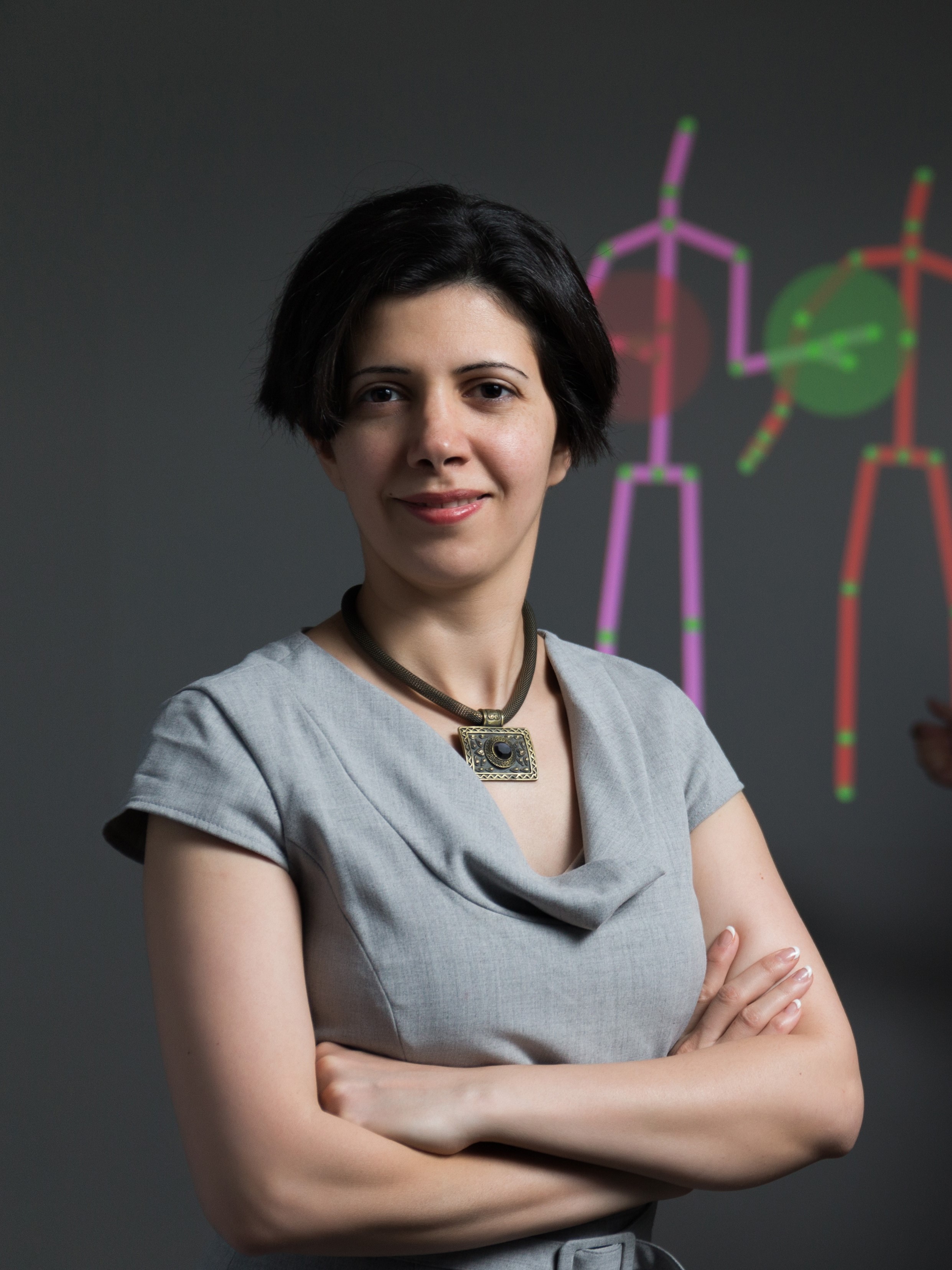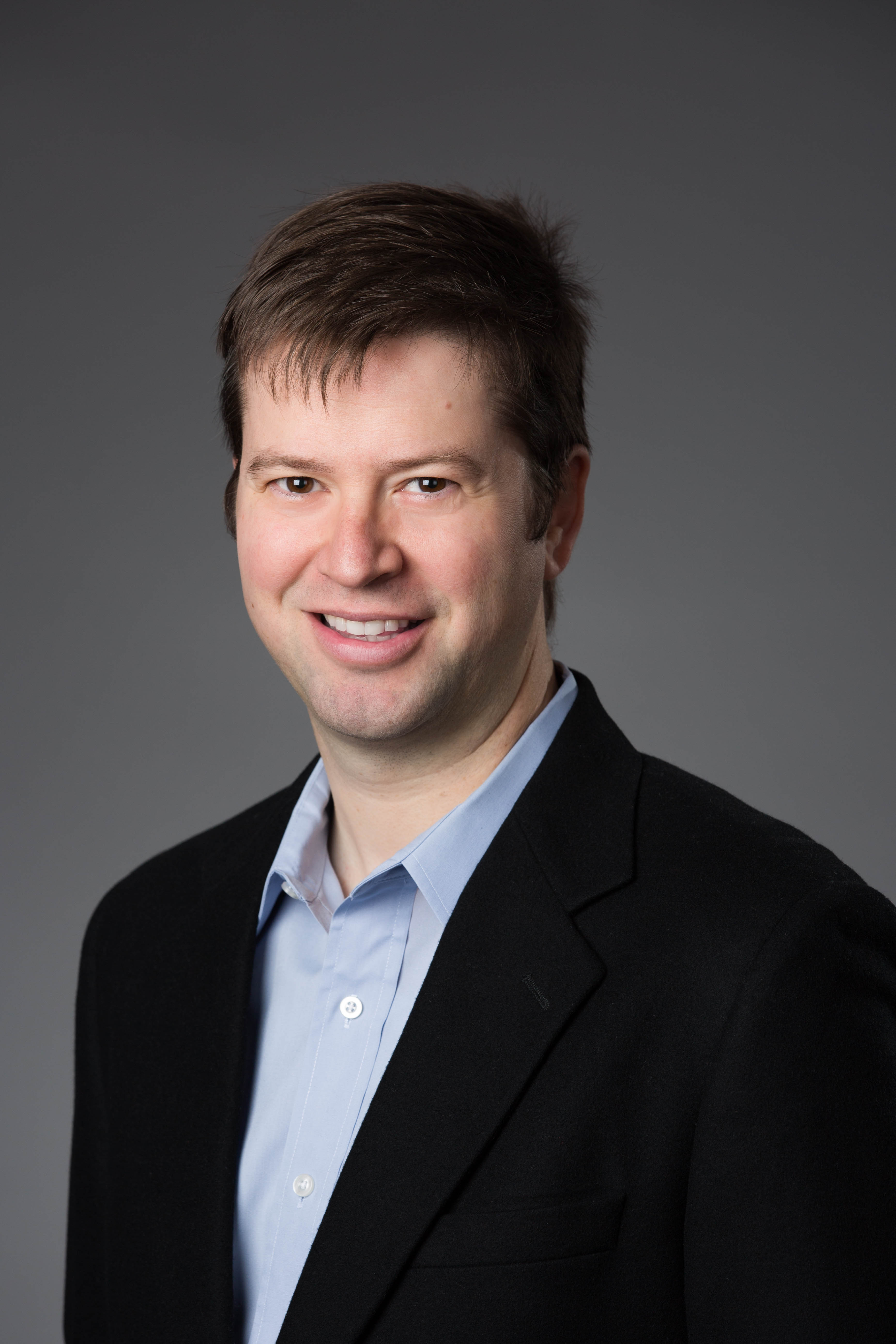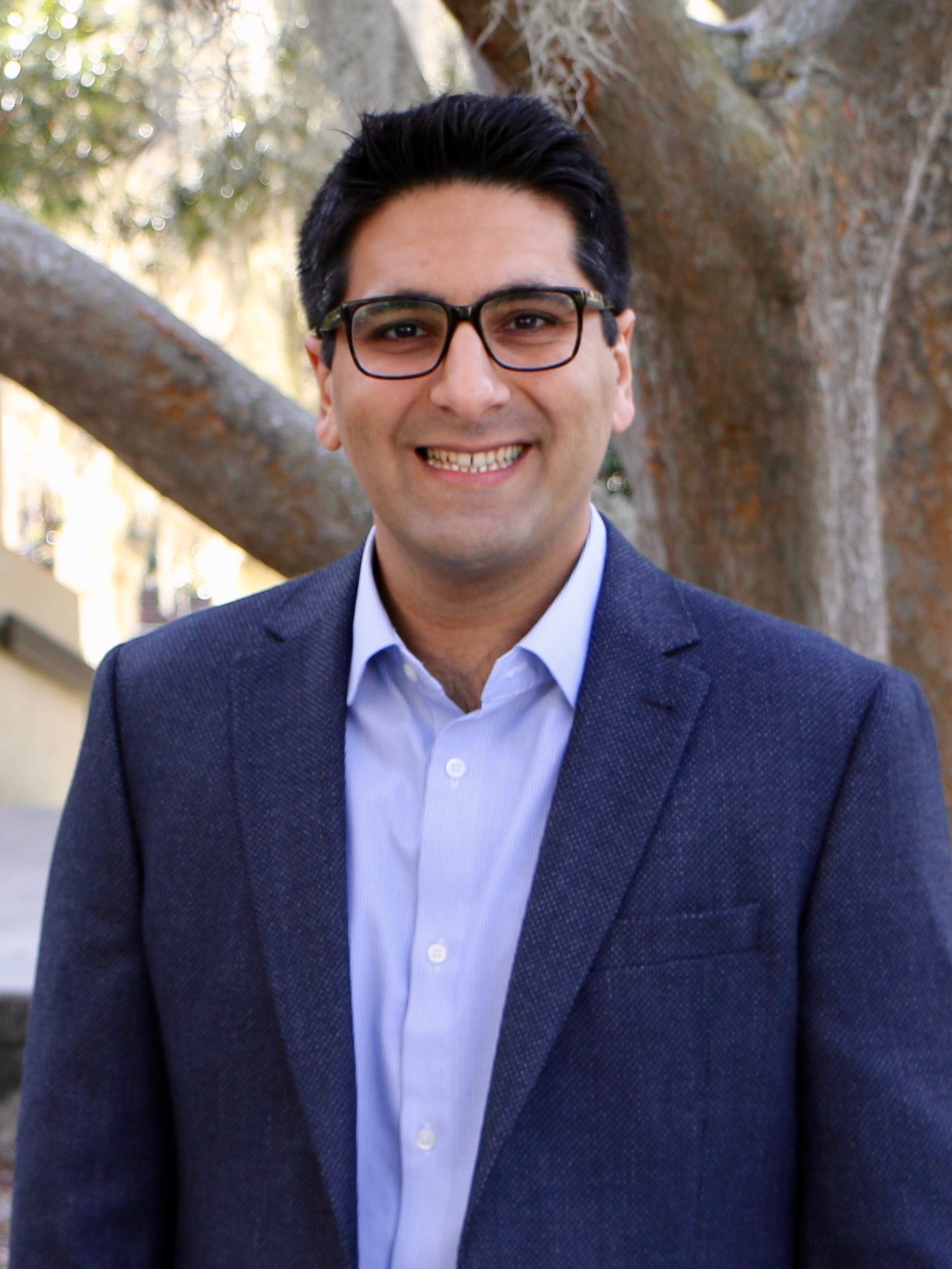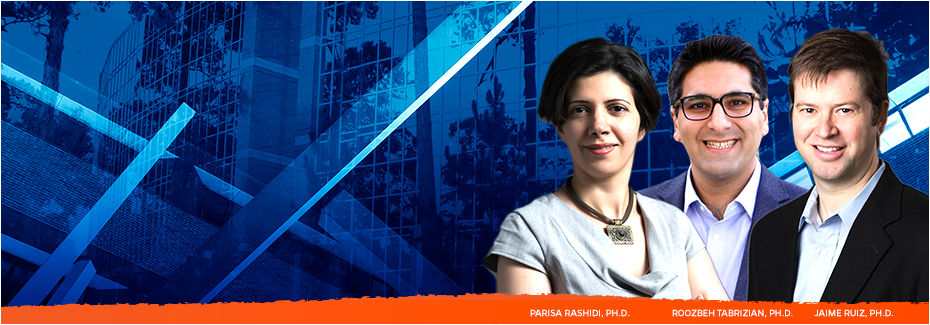A CAREER award is the National Science Foundation’s most prestigious award for junior faculty and is designed to help provide a foundation for a lifetime of scientific leadership.

Monitoring ICU Patients Autonomously
Parisa Rashidi, J. Crayton Pruitt Family Department of Biomedical Engineering
Today’s critical care units cannot easily assess subjective indicators such as patients’ pain levels and functional abilities. While nurses repeatedly measure vital signs, patients’ responses to inquiries about movement and pain are not always reliable and can vary significantly depending on a number of external factors, leading to missed opportunities for early intervention if something is amiss.
Rashidi’s research attempts to assess pain and functional status with autonomous monitors, which will compile a myriad of minute details into data that could result in the ability to predict the direction of a patient’s status and result in more successful treatment. Rashidi’s award will support her exploration of algorithms that are most suited to machine learning with respect to critical care.
Her lab students will also benefit from Rashidi’s award, as it will provide a training environment in which they can develop focused research habits. The award will also allow Rashidi and her team to organize summer internships for high school students and math teachers, as well as conduct “intelligent machine” workshops on coding and machine learning. These programs are expected to promote interest among Florida high school students in STEM (science, technology, engineering and mathematics) fields.

Humanizing the interface between people and technology
Jamie Ruiz, Department of Computer & Information Science & Engineering
The interface between people and technology has come a long way since the robot on the original Lost in Space television series (circa 1965-1968) slowly and mechanically uttered, “DANGER, . . . Will . . . Robinson!” These days Alexa and Siri almost sound like a family member in the next room that we just can’t see.
Jamie Ruiz, an assistant professor at the UF Herbert Wertheim College of Engineering’s Department of Computer & Information Science & Engineering (CISE), received his CAREER award from NSF to support his research into “Next Generation Multimodal Interfaces”. Dr. Ruiz is working to understand how nonverbal communication, such as a person’s gaze, posture and facial expressions can be interpreted by computers in order to provide a more natural interaction between humans and technology. Such interaction will become more and more important as humans continually increased their technology involvement each year.
Ruiz will use his award to first study human-human nonverbal communication to determine common characteristics. From data collection on human-human interactions, the research will move to creating the ability for computers to recognize the input and understand the meaning of a gesture or a look. Ruiz hopes to develop mathematical models that will allow designers and researchers to predict the costs of any proposed interaction techniques in terms of the machine learning involved.
More on Jaime Ruiz's 2018 CAREER Award.

Widening The Bandwidth For Wireless Communications
Roozbeh Tabrizian, Department of Electrical and Computer Engineering
Roozbeh Tabrizian is an assistant professor at the Herbert Wertheim College of Engineering’s Department of Electrical and Computer Engineering. The title of his award abstract – “Active Nano-Acoustic Waveguide Matrix to Tackle Signal Processing Limits: Enabling Wideband and Nonreciprocal Integrated Communication beyond the UHF” may come across as very asbtract, but what he is investigating is actually toward transformative solutions that affect all of us every day in every way.
Today, the “airwaves” along which all of our wireless communications travel encompass a very small band on the ultra-high frequency (UHF) radio spectrum (0.3 -6 Gigahertz [GHz]). Being able to effectively access a larger radio spectrum (e.g., 3-300 GHZ) covering the super-high frequency (SHF) and extremely-high frequency (EHF) ranges would help engineers continue their work on wireless services that will enrich the society of the future.
There is another problem faced by wireless technologies today. Communications that are being transmitted cannot travel along the same waves as communications that are being received, thus doubling the burden on the existing narrow bandwidth. Through his research into fundamentally different operation physics, he is working toward supporting data transmission and reception at the same time on the same frequency band, further opening up space on the new spectrum for future development.
Tabrizian’s award also includes an educational aspect. He has undertaken a project that creates educational kits and has developed a high school curriculum centered around nano-electro-mechanical systems (NEMS) and their role in everyday life. This project will enhance diversity in interdisciplinary STEM research and careers through the involvement of female and minority students. Additionally, NEMS-specific graduate and undergraduate courses will be created under this NSF award.
